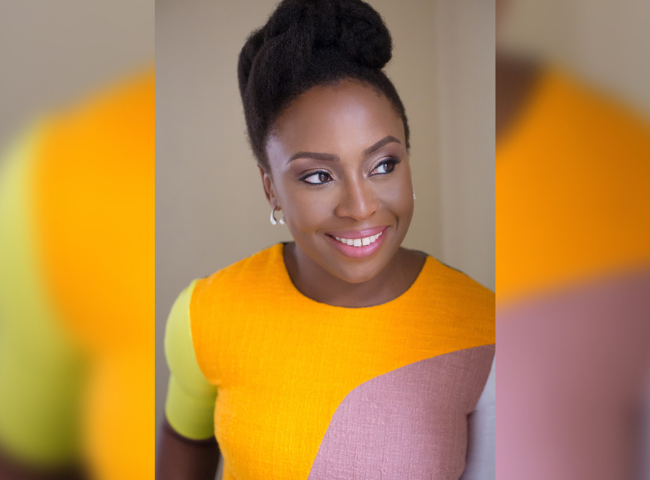
This week’s issue of The New York Times features Chimamanda Adichie’s review of Barack Obama’s latest memoir, A Promised Land.
As one of the highest profile reviewers of the memoir thus far, Adichie gives nothing away for free, serving up both criticism and praise where it is due. She takes Barack Obama to task as a writer, a man, a politician, and a character in his own memoir.
The review reflects Adichie’s estimation of both former President Obama and the United States as she focuses on the topics most important to her: storytelling, feminism, critical discussions of race, and honest representation of American culture.
Read what Chimamanda Adichie has to say on the topics below:
On Obama as a Storyteller
His language is unafraid of its own imaginative richness. He is given a cross by a nun with a face as “grooved as a peach pit.” The White House groundskeepers are “the quiet priests of a good and solemn order.” He questions whether his is a “blind ambition wrapped in the gauzy language of service.” There is a romanticism, a current of almost-melancholy in his literary vision.
On Obama as a Feminist
He articulates the burdens women face, the double standards and unfairness, the contradictory impulses of a sexist world, with a fluidity and fluency that can oddly lead to a kind of resentment…Here at last is a man who gets it, and yet that he so perfectly gets it feels like an affront. Is it a clever metaphorical take on gender role reversal that he frequently describes the physical looks of men and not of women? We are told of the handsomeness of men like Charlie Crist and Rahm Emanuel, but not the beauty of women, except for one or two instances, as in the case of Sonia Gandhi.
On Obama as American’s First Black President
But it is on the subject of race that I wish he had more to say now. He writes about race as though overly aware that it will be read by a person keen to take offense. Instances of racism are always preceded by other examples that ostensibly show the absence of racism…Obama recognizes, during his run for president, that while special-interest politics — by ethnic groups, farmers, gun-control enthusiasts — is the norm in America, it is only Black Americans who practice it at their peril. To focus too much on “Black issues” like civil rights or police misconduct is to risk the backlash of whites.
On Obama as a Reflection of the United States Today:
Often, in this book, Barack Obama does an Obama. He is a man watching himself watch himself, curiously puritanical in his skepticism, turning to see every angle and possibly dissatisfied with all, and genetically incapable of being an ideologue…The story will continue in the second volume, but Barack Obama has already illuminated a pivotal moment in American history, and how America changed while also remaining unchanged.
Click here to read the full review.









COMMENTS -
Reader Interactions